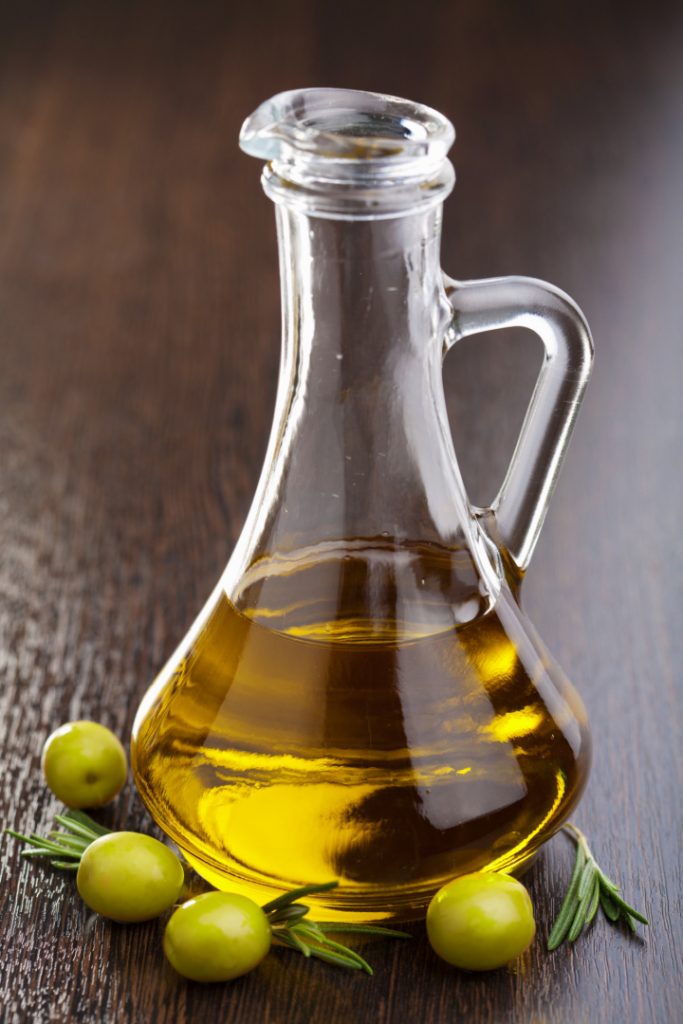You will always find a bottle of olive oil in my kitchen! Here are my best tips for cooking with olive oil.

Savor the delicate aromas and earthy flavors, and you’ll understand why olive oil is the cornerstone of wholesome cooking. The popular Mediterranean Diet, Weight Watchers, and other plans herald olive oil as a healthy source of fat. Even the FDA has suggested replacing sources of saturated fats with extra virgin olive oil for its positive health effects, such as balancing cholesterol.
Which Oil Is Best to Use When Cooking?
Olive oil is versatile and easy to use, whether for dipping with a generous chunk of artisan bread, as a base for salad dressing, or to saute vegetables. Like good wine, some olive oils pair better with certain foods. Some brands can taste more bitter than others or have a pungent fragrance. Taste several brands of extra virgin olive oil to determine which fall into your range of preference.
The highest grade of olive oil is extra virgin, often called EVOO by celebrity chefs Rachel Ray and Mario Batali. Properties vary within grades by taste, color, shelf life, smoke point, and anti-oxidant levels, so it can be difficult to tell by the label or color exactly what you are buying. Using EVOO ensures the best results for most cooking purposes.
Tips for Cooking With Olive Oil
Condiment
Select a lighter oil for salad dressings, top a baked potato, drizzle over tomatoes, or brush onto bread. Unheated olive oil is at its finest for health benefits and mild flavor. Use more robust extra virgin oils for mixing with intense flavors such as garlic, or pepper for marinades or sauces, like pesto or tomato.
Marinade
Extra virgin olive oil is an ideal base for marinades to add flavor and tenderize meats prior to cooking. To 1/4 cup olive oil, add an equal amount of an acid source, such as vinegar, wine, or even papaya or pineapple. Mix in desired seasonings, such as rosemary, garlic, onion, or herb blend. Cover the meat, fish, or other food to be marinated and refrigerate. Seafood only needs to be marinated 20 minutes to an hour—chicken, beef, or other meat an hour or more.
Browning or sauteing
Try a more robust flavored oil to brush onto the pizza crust or in cooked sauces. Heating to a high temperature evaporates the alcohols inherent in olive oil, dampen flavors, and can even become bitter. More expensive extra virgin products are not needed here. To add a buttery flavor without the total cholesterol load, try mixing equal parts EVOO with butter.
Frying
EVOO has the highest smoke point of all the grades of olive oil but is still lower than some other cooking oils, such as canola or soy. If deep fat frying, olive oil must be watched closely, so it doesn’t burn.
Infusion
EVOO readily picks up the flavors of herbs and spices that are placed in it, and infusions make a lovely gift. Fill an attractive bottle with olive oil and add a sprig of rosemary or garlic clove for a lovely gift. However, be very careful. Do not place anything in the olive oil that can contain water or moisture. Oil does not promote bacterial growth, but water from the fresh lemon peel or recently washed herbs can. Use only dried herbs, or preserve the garlic cloves or peels in a strong brine before introducing it to the olive oil.
Storage
Olive oil quickly begins to oxidize when exposed to light, heat, and air. Take care to seal a bottle quickly after use and store it in a darkened pantry or cabinet away from heat sources. The ideal temperature in which to store olive oil is about 50*F, and if stored at temperatures below this, the oil can become cloudy and form crystals or clumps that sink to the bottom. Note that this does not ruin the oil, and it will return to normal appearance at room temperature. Properly stored, olive oil can keep for up to a year.
Olive oil can easily be substituted for butter or margarine in most uses where a liquid shortening is appropriate. The standard conversion formula is 1 unit of butter or shortening to .75 units of olive oil. For uses where the product must stay firm at room temperature, such as frosting, olive oil is not a good choice.
With a little practice and experimentation, olive oil can become your “go-to” basis for healthy, great cuisine.
Leave a Reply